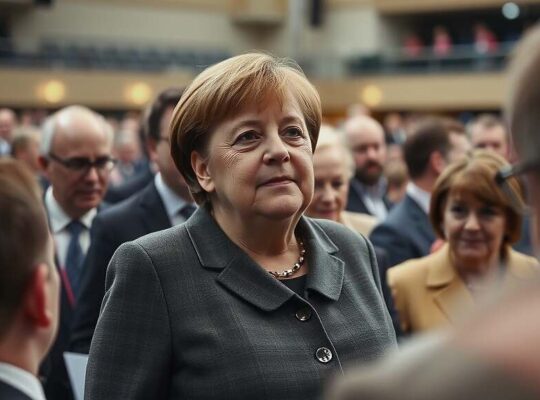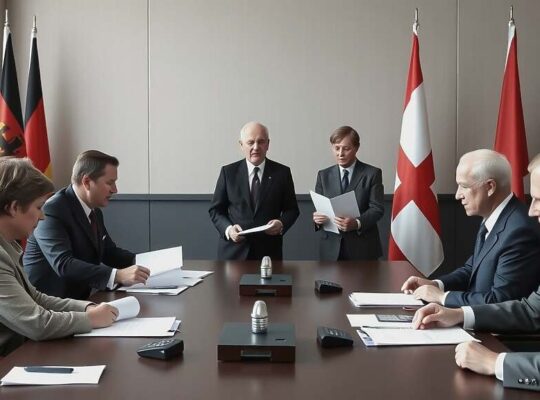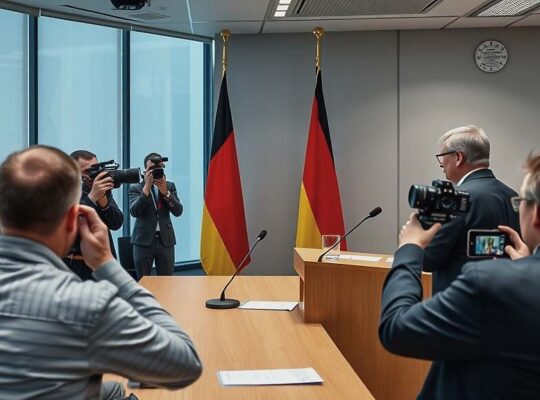A recent Forsa poll, commissioned by German news magazine “Stern”, has revealed widespread dissatisfaction with the increasingly controversial rhetoric employed by Chancellor Friedrich Merz. The survey indicates that 66% of German citizens believe Merz should exercise greater caution and sensitivity in his public statements, highlighting a growing concern about the tone and impact of his messaging.
The criticism stems largely from Merz’s pronouncements on urban development and migration, which have frequently drawn sharp rebukes. Beyond a recent controversial remark concerning cityscapes, he has previously used phrases such as “little Pashas” to describe teachers and referred to refugees from war-torn Ukraine as “social tourists”. These formulations have been perceived by many as inflammatory and divisive, fueling accusations of xenophobia and a lack of empathy.
The disapproval of Merz’s communication style transcends traditional political divides. A staggering 96% of supporters of the Left party (Die Linke), 92% of Green party voters and 83% of Social Democratic Party (SPD) members expressed dissatisfaction. Even within the ranks of the Alternative for Germany (AfD), 50% feel his language is inappropriate. While 55% of Union party supporters currently approve of Merz’s communication, a significant 44% of his own base are also urging a change in approach.
The poll’s findings raise critical questions about the leadership of the Chancellor and the direction of the Union party. While Merz’s supporters may argue his remarks are simply blunt and intended to spark debate, the overwhelming majority of the electorate appears to view them as unnecessarily provocative and potentially harmful to the social fabric. The pressure is now on Merz to reassess his strategy and adopt a more measured and nuanced approach to public discourse, lest he further alienate a significant portion of the German population and damage the credibility of his government. The disconnect between his messaging and public sentiment, even amongst his own supporters, points towards a potential crisis in political communication that demands immediate and serious attention.












